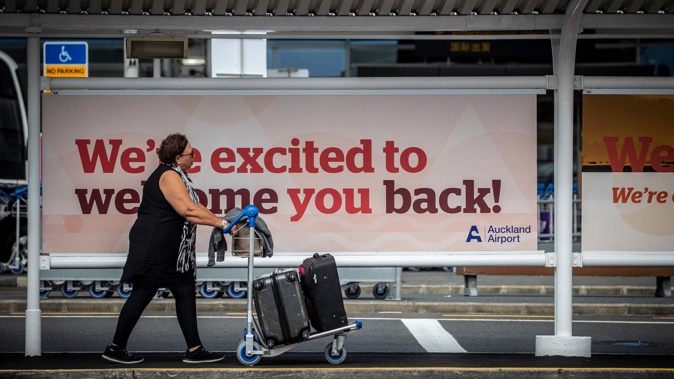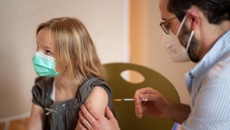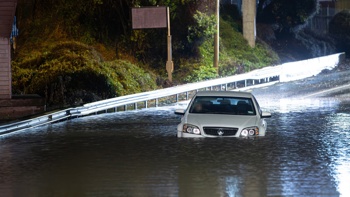
MIQ requirements should be dropped for most vaccinated international travellers arriving here, experts argue, given the Covid-19 risk they pose is now typically less than that currently for Aucklanders.
A group of Otago University researchers have also suggested the need for a set of tight control measures like vaccination, testing - and potentially some home quarantine – for people travelling out of Auckland to other regions.
In a new analysis, Dr Lucy Telfar Barnard, Dr Jennifer Summers, Lesley Gray and professors Michael Baker and Nick Wilson, pored over data to answer whether MIQ requirements for international travellers - and a lack of quarantine between Auckland and other regions – appropriately reflected the actual relative risks of Covid-19 infection between different locations.
At present, all inbound international travellers are required to enter MIQ for 14 days, and undergo repeated PCR tests.
As well, they must submit a negative PCR test result carried out 72 hours or less prior to departure from their source country.
"Increasingly, many arrivals are already fully vaccinated before departure," the researchers noted.
"Meanwhile, although New Zealand still seems to have an elimination strategy for areas outside Auckland, not all Aucklanders need to show a negative test to cross the boundary into other parts of NZ; there are no vaccine requirements; and none are required or requested to self-quarantine, regardless of destination or vaccination status."
While daily case numbers were rising in Auckland, at as at Sunday, the seven-day average number of new community cases per day was 138 in Auckland, and seven for areas outside Auckland with known Covid-19 community transmission - making population incidence rates respectively 83 and 5.2 per million people per day.
"These rates are still low by international standards, but the Auckland rate is already higher than rates for all Australian states, and some other jurisdictions," they said.
"However, raw rate comparisons, local or international, don't take into account the reduced risk for vaccinated and/or tested individuals."
They pointed out that the US Centers for Disease Prevention reported the risk of Delta infection among the unvaccinated is 4.6 times higher than the risk in people who are vaccinated - meaning case rates in the vaccinated were reduced.
Using the estimated distribution of Covid-19's latency period, and an active infection period of 10 days, they calculated that testing 72 hours prior to international departure when travelling to New Zealand roughly halved the number of active and latent Covid-19 infections entering the country.
That meant that, while the daily case rate for Covid-19 in Aucklanders was 83 per million per day - with Auckland now having 72 per cent of the total population fully vaccinated - the case rate in the vaccinated could be estimated to be 15 cases per million people per day.
"That's still much higher than the overall case rate in the rest of New Zealand," they said.
"Auckland's total case rate of 83 per million per day is higher than the case rate in many countries, and higher than the vaccinated case rate in many more."
They singled out Canada, where, after adjusting for a lower testing rate, there could be 130 new cases per million people per day – a rate that was higher than in Auckland, yet came amid a national vaccination rate of about 75 per cent.
That meant their case rate in the vaccinated is estimated at 68 new cases per million people per day, less than Auckland's 83.
"So if you're at the supermarket in Auckland, a fully vaccinated person randomly teleported from Canada is less likely to infect you than an average resident Aucklander in the aisles," they said.
"However, the risk from vaccinated international arrivals is even less than that, because they're tested before they travel."
Another example was travellers from Denmark, where the daily new case rate sat at around 290 per million people per day.
Although the case rate in the 76 per cent who were vaccinated was still higher than the rate in Auckland, half of those cases could be excluded by pre-departure testing.
"That testing brings the Covid-19 case rate in vaccinated, 72-hour tested people in Denmark down to 79 cases per million per day, lower than in Auckland."
When the researchers looked at travel from all nations, they found there were relatively few source countries of incoming travellers where the requirement for more intensive controls, such as quarantine, might be justified by their actual risk of infection relative to Auckland.
They found that even travellers from India – one of six countries on New Zealand's "very high risk" list, meaning only citizens and their immediate family are able to enter the country from there – posed a risk after pre-departure testing of around eight cases per million per day.
"That's almost as low as the 7.0 rate in Covid-19 outbreak areas outside Auckland."
Jurisdictions where the risk of infection in pre-tested, vaccinated travellers was less than in Covid-19 outbreak areas outside Auckland included Hong Kong, Taiwan, and the United Arab Emirates.
For vaccinated Aucklanders to reduce their infection risk to the same level as other Covid-19 outbreak areas of New Zealand, they would need to quarantine until a negative result from a test taken 72 hours after starting quarantine.
"Given the limit it imposes on the right of New Zealanders to enter their country, any requirement for MIQ must be risk based and consistent in order to be justified," the experts said.
"With tested, vaccinated travellers from many jurisdictions having a lower risk of Covid-19 infection than Aucklanders; with no vaccination or quarantine requirements for Aucklanders permitted to travel outside Auckland; and with the decision to allow many known positive cases in the current outbreak to isolate at home in Auckland, current MIQ requirements for tested vaccinated travellers have become inconsistent and arbitrary."
Further, they said filling MIQ rooms with arrivals who typically had a lower infection risk than Aucklanders wasted limited MIQ space.
"Public health would be better served by having those rooms available for community cases, when their homes are not suitable for home isolation."
The also noted that Auckland had now effectively moved to a suppression strategy – partly illustrated by the fact that hundreds of Covid-19 cases were now isolating at home rather than in tightly managed MIQ facilities.
"By contrast, health authorities in the rest of New Zealand still seem to be pursing an elimination strategy, to protect their populations from harm, and to allow social and economic activity to continue with minimal interference, based on level 2 settings," they said.
"For these areas, the acceptable level of Covid-19 risk is very low."
They concluded that most vaccinated international travellers arriving in Auckland should not require quarantine and would probably only need monitoring and testing "at most".
Some extra monitoring and testing might be required for the unvaccinated, they added, as well as for those coming from higher incidence jurisdictions such as the UK, or jurisdictions where case rates relative to Auckland could not be well estimated.
"Most vaccinated international travellers destined for other parts of New Zealand could now fly into Auckland, and then travel on to other parts of the country on the same testing and quarantine conditions as for Aucklanders."
At the same time, they argued that the boundary around Auckland needed to be strengthened to minimise the risk of infected people travelling to other regions still pursuing elimination – at least until a national vaccination target, like 90 per cent, had been reached.
"These measures should include vaccination, pre-travel testing, and potentially an additional home quarantine requirement and a post-travel test on arrival in other parts of New Zealand," they said.
"If the Government takes a less stringent approach to the Auckland boundary than we recommend, and Aucklanders are not required to quarantine on arrival in other parts of New Zealand, then most vaccinated international travellers should not be required to either."
Their recommendations comes ahead of a Government decision today, on whether Cabinet will go ahead with an in-principle decision to move Auckland into alert level 3 step 2 from 11.59pm on Tuesday.
Take your Radio, Podcasts and Music with you









